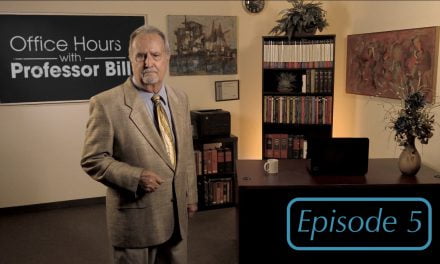This article is part of an ongoing series covering violations of real estate law. Here, a broker surrendered his license in connection with a disciplinary action taken by the Department of Real Estate (DRE) for making substantial misrepresentations to his client in order to earn more fees.
In April 2023, the California Department of Real Estate (DRE) accepted the voluntary surrender of the license of Darwin Ashley Greenwell, a broker since 2010 operating out of San Jose, California.
In May 2019, Greenwell entered into a listing agreement with a seller for a property which needed significant repairs to be made marketable. Greenwell offered to act as a foreman for a general contractor and recommended a company to do the work, True Spex. The seller agreed.
The listing agreement specified that the cost for construction was to be capped at $75,000. Any amount over the agreed to $75,000 threshold was to be deducted from the broker fees the seller owed to Greenwell.
As of September 2019, the seller paid $75,000 in construction costs. However, after reaching this agreed to threshold, Greenwell demanded additional payments. The seller refused, citing their agreement to cap expenses at $75,000 as documented in the listing.
In October 2019, Greenwell told the seller he had received an offer to purchase the property though was withholding it since the seller did not meet his payment demands beyond the $75,000.
A few days later, the seller paid Greenwell an additional $20,000 for construction work requested by Greenwell. Greenwell delivered the previously received purchase offer to the seller after receiving the additional payment. However, the offer had expired days prior. Greenwell did not advise the seller about any expiration date contained in the offer.
The home was later sold to a different buyer and Greewell sought to receive his full commission.
In totality, the seller paid $103,280 on construction work for their home, in excess of the threshold which triggered payment of a reduced broker fee. Greenwell refused to honor the terms of the contract which provided for a reduction in his fees for amounts over $75,000, and further failed to provide a detailed accounting to the seller of the construction work.
The representations made by Greenwell were false, and he knew they were false when they were made. In truth, he did not intend to reduce his fees by the amount over the $75,000 cap on construction, and he was not experienced or competent in overseeing construction projects in a capacity of a foreman. Greenwell made those misrepresentations to obtain over $100,000 above and beyond his fees for the transaction.
The DRE found that Greenwell:
- made a substantial misrepresentation [Business and Professions Code §10176(a)];
- made false promises to influence, persuade or induce [Bus & P C §10176(c)]; and
- engaged in fraud or dishonest dealing. [Bus & P C §10176(i)]
As a result, Greenwell’s license was subject to suspension or revocation. [Bus & P C §§10176(a), 10176(b), 10176(c), 10176(i), 10177(d), 10177(g), 10177(j)]
A duty to act honestly
A sellers agent under a listing agreement with the seller owes the affirmative obligation of a fiduciary duty of utmost care, integrity, honesty and loyalty in dealings with the seller. [Calif. Civil Code §2079.16]
At a bare minimum for obtaining a salesperson or broker license, the DRE requires an applicant to be honest and truthful. Thus, honesty, fair dealing and good faith are fundamental aspects of a licensee’s requirements.
The broker in this case put his own desires for greater fees above his fiduciary duty to serve his client — the antithesis of proper agency and fair dealing.
Every exclusive listing agreement entered into by a broker or an agent on behalf of their broker with a principal establishes a client relationship. The employment imposes special agency (fiduciary) duties on the broker and the agent to use due diligence.
Due diligence is a continuous effort by the broker and their agents to meet the objective of the employment.
Fiduciary duty is the duty owed by an agent to act in the highest good faith toward the principal and not obtain any advantage by the slightest misrepresentation, concealment, duress or undue influence.
As a fiduciary, the broker’s and agent’s conduct under the employment are equated to the conduct required of a trustee acting on behalf of a beneficiary. This fiduciary duty, also called agency, survives the termination of the contractual employment relationship. [CC §2079.16]
Related video:















No Criminal Charges? No wonder the crooks gravitate to California and places of a like mindset.
There absolutely should have been criminal charges. What he did was disgusting. He shouldn’t be allowed to work in the construction industry in any capacity, financial or field, because of his incompetence and negligence.